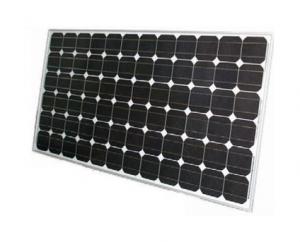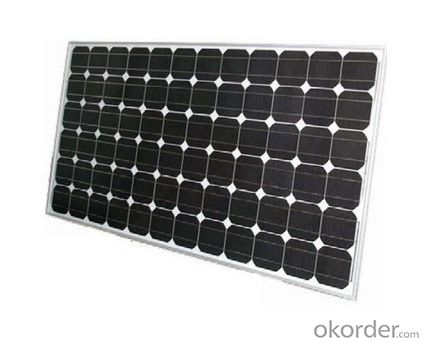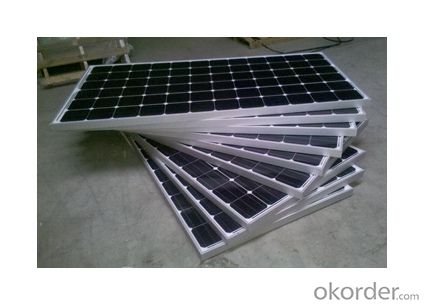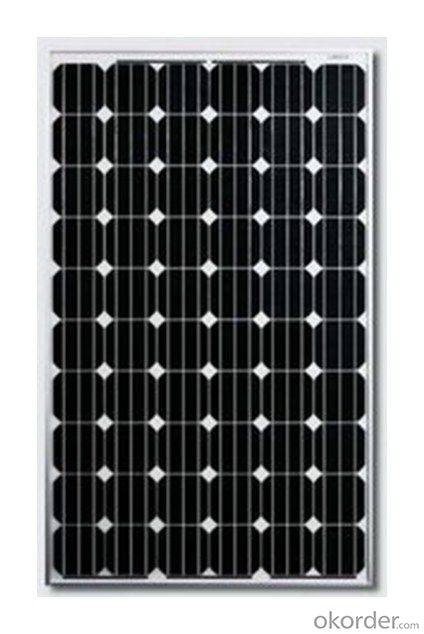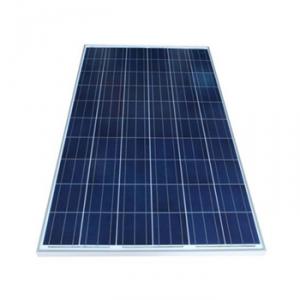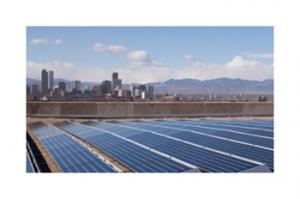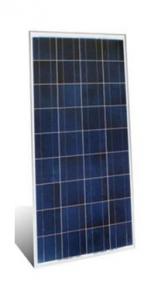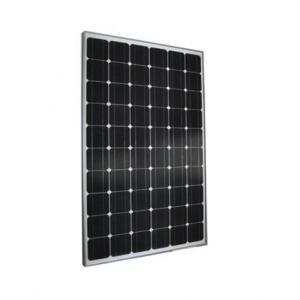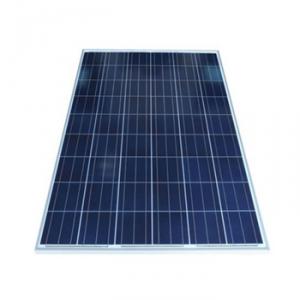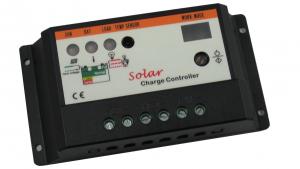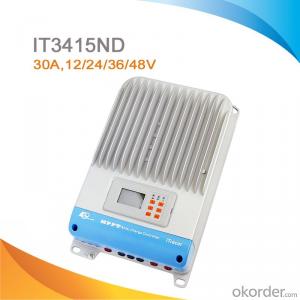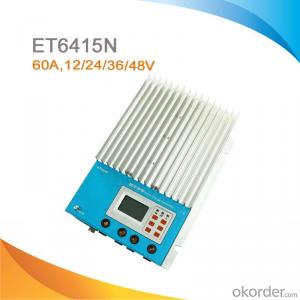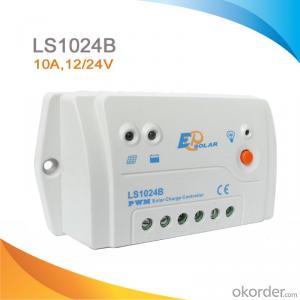Resol Solar Thermal Controllers Compatible Solar Panel Mono-Crystalline 156*156 250W Module
OKorder Service Pledge
OKorder Financial Service
You Might Also Like
Solar Module Descriptions:
This high efficiency waterproof 250W mono-crystalline solar panel is ideal for all on-grid roof installations on houses and commercial buildings, as it has been manufactured to the highest standards and certified by MCS and TUV to be suitable for any on-grid solar installations. The solar panel is also perfect for all off-grid installations on caravans, campervans, motor homes and boats for charging leisure battery banks or for off-grid household solar systems with batteries.
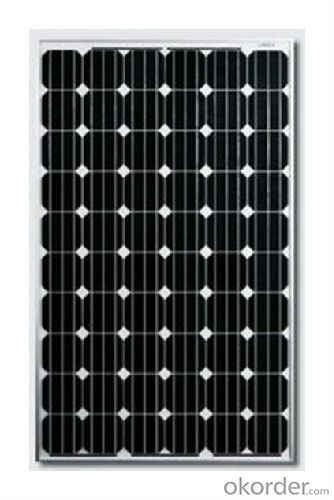
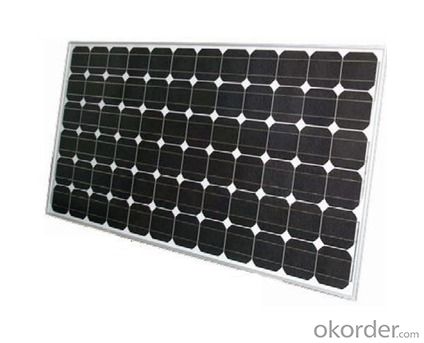
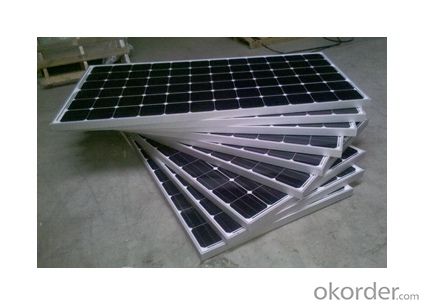
Electrical Characteristics
Max-pow (W) | 250 |
Max-Power Voltage (V) | 51 |
Max-Power Current (A) | 4.9 |
Open-Circuit Voltage (V) | 61.7 |
Short-Circuit Current (A) | 5.4 |
Mechanical Characteristics
Cable type, Diameter and Length | 4mm2, TUV certified, 1000mm |
Type of Connector | Compatible with MC4 plug |
Arrangement of cells | 6*12 |
Cell Size | 156*156 |
Dimension | 1580*1069*45 |
Weight | 20.5Kg |
Glass, Type and Thickness | High Transmission, Low Iron, Tempered Glass 3.2mm |
Features
Guaranteed positive tolerance 0/+5w ensures power output reliability
Strong aluminum frames module can bear snow loads up to 5400Pa and wind loads up to 2400Pa.
Excellent performance under low light environments (mornings evenings and cloudy days)
12 years for product defects in materials and workmanship and 25 years for 80% of warranted minimum power.
Certifications and standards: IEC 61215.
Manufactured according to International Quality and Environment Management System (ISO9001, ISO14100).
FAQ
Q: Do you have any MOQ limit?
Our MOQ is 200 pieces.
Q: How long is the warranty period for the solar modules?
15 years 90% of its nominal power rating.
25 years 80% of its nominal power rating
Q: What kind of loads can I run on PV?
With a correctly designed PV system you can power almost any electrical load.
- Q: Can a solar controller be used with solar-powered smart city infrastructure?
- Yes, a solar controller can be used with solar-powered smart city infrastructure. A solar controller regulates the voltage and current from solar panels to ensure efficient charging and operation of batteries, which are often used in smart city infrastructure to store and supply power. By using a solar controller, the solar-powered smart city infrastructure can effectively manage and optimize the energy generated by solar panels, contributing to sustainable and reliable operations.
- Q: How does a solar controller handle the protection against high voltage transients?
- A solar controller handles the protection against high voltage transients by employing various protective mechanisms. It typically includes surge protection devices like transient voltage suppressors (TVS), metal oxide varistors (MOV), or gas discharge tubes (GDT) to divert excessive voltage spikes away from the system. These protective components act as a barrier, absorbing and dissipating the transient energy to prevent it from damaging sensitive components and electronics. Additionally, the solar controller may also incorporate overvoltage protection circuits and input/output filters to further mitigate the impact of high voltage transients on the system.
- Q: Can a solar controller handle low light conditions?
- Yes, a solar controller is designed to handle low light conditions. It is equipped with advanced technology that allows it to detect and adapt to lower levels of sunlight, ensuring efficient charging and optimal performance of the solar system even in low light situations.
- Q: How does a solar controller prevent damage from reverse current flow in the load?
- A solar controller prevents damage from reverse current flow in the load by using a built-in blocking diode. This diode only allows current to flow in one direction, preventing any backflow of current from the load to the solar panels. By blocking the reverse current, the solar controller ensures that the load receives power from the solar panels without any risk of damage.
- Q: Can a solar controller be used in a solar-powered charging station?
- Yes, a solar controller can be used in a solar-powered charging station. A solar controller helps regulate the voltage and current from the solar panels to ensure proper charging and protection of the batteries in the charging station. It also helps prevent overcharging and damage to the batteries, making it an essential component in a solar-powered charging station.
- Q: What is the maximum efficiency rating of a solar controller?
- The maximum efficiency rating of a solar controller can vary, but it typically ranges between 95% to 99%.
- Q: How does a solar controller handle battery equalization?
- A solar controller handles battery equalization by regulating the charging process to ensure that all cells within the battery are charged uniformly. It monitors the voltage of each individual cell and adjusts the charging voltage and current accordingly to prevent overcharging or undercharging of any specific cell. This helps to maintain the overall health and longevity of the battery by preventing imbalances between cells and promoting their equalization.
- Q: How does a solar controller handle the protection against battery reverse discharge?
- A solar controller handles the protection against battery reverse discharge by monitoring the voltage of the battery. If the voltage drops below a certain threshold, indicating that the battery is being discharged in the wrong direction, the controller will automatically disconnect the battery from the solar panels to prevent any further discharge. This helps to protect the battery from damage and ensures its longevity.
- Q: Can a solar controller be used with a solar air conditioning system?
- Yes, a solar controller can be used with a solar air conditioning system. The solar controller will help regulate and optimize the power output from the solar panels, ensuring efficient operation of the air conditioning system.
- Q: How does a solar controller prevent damage from overloading of the load?
- A solar controller prevents damage from overloading of the load by constantly monitoring the current flowing into the load. It is equipped with circuitry that detects when the load is drawing more current than the controller can handle. When an overload is detected, the controller automatically shuts off the current flow to the load, protecting both the load and the controller from potential damage.
Send your message to us
Resol Solar Thermal Controllers Compatible Solar Panel Mono-Crystalline 156*156 250W Module
OKorder Service Pledge
OKorder Financial Service
Similar products
Hot products
Hot Searches
Related keywords
